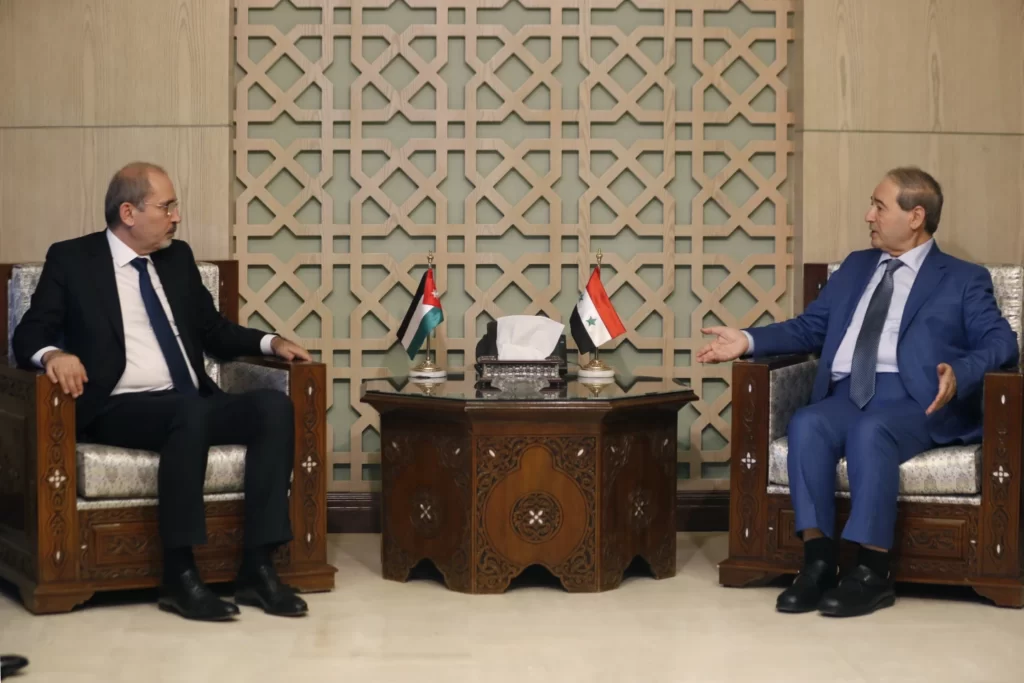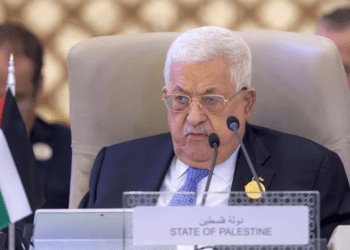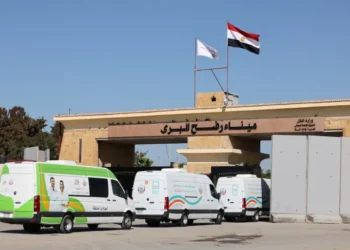Foreign Minister of Jordan, Ayman Safadi has called for international investment into Syria’s infrastructure so as to accelerate refugee returns.
Ayman Safadi made the remarks on Monday, July 3, 2023, during a visit to the capital Damascus, where he met with Syrian President, Bashar Assad and Syrian Foreign Minister, Faisal Mekdad.
Jordan, which borders the war-torn nation and is currently home to 1.3 million Syrian refugees, was key in bringing the formerly pariah state back into the Arab League. In an effort to find a political resolution to the protracted situation, it convened regional meetings in May involving officials from Egypt, Saudi Arabia, Syria, and the Kingdom of Saudi Arabia.
In its 13th year, Syria’s uprising-turned-civil war has resulted in the deaths of about 500,000 people and the displacement of half of the country’s 23 million residents. Syrians have widespread poverty and a weakened infrastructure in both areas controlled by the government and an opposition-held enclave in the northwest of the country.
At a news conference following his meetings, Safadi stated, “We have offered everything we can to ensure them a dignified life.” “But what we are sure of is that the refugees’ futures lie in their country,” he added.
Safadi averred that securing critical infrastructure and basic necessities will speed up voluntary refugee returns, especially as international aid for refugees continues to decline.
In a statement released by the Syrian President’s office, Assad iterated similar sentiments, saying that investment in infrastructure and reconstruction would create the “best environment” for refugee returns.
“We reaffirm that the refugee file is a solely humanitarian and moral issue that should not be politicized in any way,” the statement noted.
Assad stressed that ensuring requirements of reconstruction and rehabilitation, as well as supporting this process with early recovery projects is also necessary to help the returnees restore their normal life.
Additionally, Assad pointed out that all the measures taken by the Syrian state, both at the legal level or at the reconciliation level, help create a suitable environment for the return of the refugees.
For his part, Al-Safadi reviewed the recent efforts exerted by Jordan concerning the refugees’ return and the new ideas that were developed in this regard in coordination with the Arab Contact Group and the United Nations.
He asserted Jordan’s support for stability in Syria and its willingness to work with the Syrian government to enhance cooperation in different fields in contribution to returning the Syrian refugees.
He pointed out that the gradual treatment of the impacts of the crisis in Syria is the best and most realistic option to end the crisis.
Safadi, Mekdad And Assad Discuss Syria’s Humanitarian Crisis

Safadi’s meetings with Mekdad and Assad also discussed the humanitarian crisis in Syria, steps toward a political solution to the conflict, and drug smuggling, which has become a lucrative industry in the economically shattered country.
While Syria receives humanitarian aid through United Nations agencies, Western-led sanctions have made it difficult for the country to fix electricity, water and other infrastructure decimated in the conflict and more recently by a devastating 7.8 magnitude earthquake in February.
Western countries, most especially the United States and the United Kingdom, claim that Syria is still not safe for return. U.N. agencies and human rights organizations say the same, with groups like Amnesty International and Human Rights Watch saying they have documented cases of arbitrary detention and disappearances.
In other developments, Ayman Safadi, Jordan’s Foreign Minister is scheduled to arrive in Türkiye for a two-day visit on Monday for talks, the Turkish Foreign Ministry announced.
During the visit, Safadi will meet with his Turkish counterpart, Hakan Fidan. The Ministers will discuss bilateral relations, as well as current regional and international issues, the ministry said in a statement.
Anti-refugee sentiment has soared in Lebanon and Turkey, two other neighboring countries hosting Syrian refugees.





















